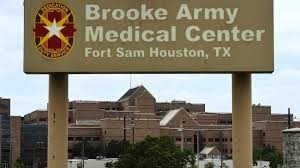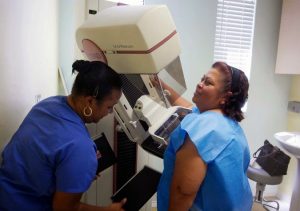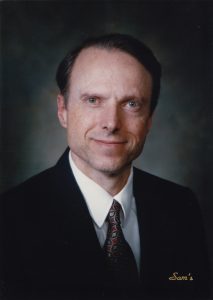Class Notes: Jan/Feb 2018
Ed Boyle died in 1999, and it was only this summer that your scribe tracked down his son to find out the story of the final years of his life and his tragic death. Ed was my roommate in both sophomore year and senior year. He was not your garden-variety Yalie. He was RC-Classic, and wore that on his sleeve. Most of the rest of us were at Yale for a great secular education (check), and a suitable amount of debauchery (check). We did manage to put a dent in his religious beliefs, as “smart” 19-year-olds will, and after Yale, all his roommates became professionals who certainly fit the standard mold of “1,000 leaders.” But what about Ed?
 Here is the gist of the story, from the Brooke Army Medical Center memorial in 2002:
Here is the gist of the story, from the Brooke Army Medical Center memorial in 2002:
“However, it was at this time, when Boyle finally found his calling, that things took a sharp and cruel turn. The man who devoted his life to breast cancer soon discovered he had pancreatic cancer. He went through two major surgeries in September and December of 1994 to remove it, but five years later, the cancer returned. ‘This man had a terminal disease that takes most people within a year,’ LTC Black said. ‘He lasted five years, and that whole five years instead of traveling the world or taking it easy and spending his money, he spent his time in this building making women’s imaging better here than it is in 99 percent of the United States.’
 During those five years, Boyle reorganized the training programs for residents and staff at the medical center, serving as Chief of the Radiology Resident Training Program for SAUSHEC. At the research level, he participated in studies and prepared grant applications for research projects to be conducted at BAMC. He was the coordinator of the Digital Mammography Project, co-investigator of the premarket Digital Mammography Machine Project, co-wrote a published article, which was the first to investigate the effects of motion on the use of Digital Mammography, and he wrote the grant application for the Digital Screening Mammography Project that was commissioned by the NCI. But the whole time he did all of that, his eyes stayed focused on a bigger prize. At the time, mammography and breast ultrasounds were being done in the general radiology department. It wasn’t very private for women. Then, Boyle noticed an old x-ray file room and knew it would be perfect for a new women’s imaging center.
During those five years, Boyle reorganized the training programs for residents and staff at the medical center, serving as Chief of the Radiology Resident Training Program for SAUSHEC. At the research level, he participated in studies and prepared grant applications for research projects to be conducted at BAMC. He was the coordinator of the Digital Mammography Project, co-investigator of the premarket Digital Mammography Machine Project, co-wrote a published article, which was the first to investigate the effects of motion on the use of Digital Mammography, and he wrote the grant application for the Digital Screening Mammography Project that was commissioned by the NCI. But the whole time he did all of that, his eyes stayed focused on a bigger prize. At the time, mammography and breast ultrasounds were being done in the general radiology department. It wasn’t very private for women. Then, Boyle noticed an old x-ray file room and knew it would be perfect for a new women’s imaging center.
So he sat down at a drawing board and sketched out his plans…. The whole time, however, he was battling a painful cancer. ‘Quite often, during the day,’ LTC Black said, ‘I’d find him in the bathroom just overcome with pain — he was also diabetic — trying to inject his pain medicine. And anyone with pancreatic cancer will tell you when the disease strikes, it is terribly painful. But as soon as he got the pain under control, he’d be back to the work area. He never cried, he never gave up, never said a negative word and he never asked, “why me?”’
LTC Black also emphasized that Boyle exemplified Army Leadership values, even though he was a civilian doctor. In Boyle’s final weeks alive, he was stricken to a bed, knowing he would die soon. But his heart was strong. He allowed the residents to come visit him at his house when he was drinking water through a straw via a tube through his stomach. He would give away his medical books to the residents and sign them with inspirational notes. Then, at the age of 52, he died.
And now, his life will be remembered at the new mammography wing he spent the last years of his life building. And under his picture will be the words, “Dr. Edward Boyle, MD. Founder and Advocate of the Brooke Army Medical Center Women’s Imaging Center. Friend, Colleague, Teacher, Mentor. A Courageous Leader Who Put the Needs of his Patients and Students First.”
“And so, if the classic image of dying with dignity must be modified or even discarded, what is to be salvaged of our hope for the final memories we leave to those who love us? The dignity we seek in dying must be found in the dignity with which we have lived our lives.”
— Sherwin Nuland


Thanks, Dan for posting this moving story about Ed Boyle. I didn’t know him (I didn’t know most of the class of 1969) but knowing that someone in my class lead this inspirational life is all the more compelling. And, having the focus of the story be on Ed’s end of life is different than most memorial stories: it give me something positive to model myself when I get in this situation. Thanks.
Ed’s inspiring work was done close to my home in Austin. My second daughter is a third year resident in Emergency Medicine at SAMC, as it is now known in San Antonio. She and my three other children have made me, a proud physician father, even prouder. I did not know Ed Boyle, but I feel like a do somewhat now. We can all be proud of his legacy as a physician, as an innovator, and as a true humanitarian in the Yale tradition. He was a great man, a Yalie taken far too early.